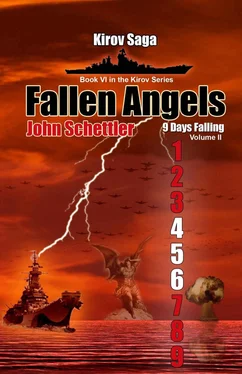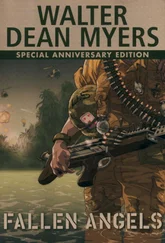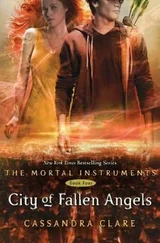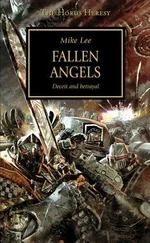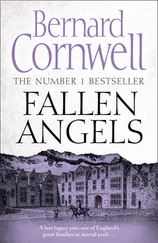“Gunnery officer. All batteries to bear on target at three-five-zero degrees. Make your range 33,000 yards and commence firing.”
Another explosion told him they had been hit yet again by a small caliber round. He knew he had this one brief moment. The fleeting moment of first contact where a general calculation of the range to horizon would give him the range. He knew optical sighting crews were working the problem now as well, but the Big Stick would get something in the air while they were still calculating. That ship could turn away at any minute and they would lose both bearing and range.
Then the big guns blasted away, the deafening sound ripping the air with fire and concussion so great that it flattened the waves out a hundred yards from the ship and literally sheared away the rising water splash of two more enemy rounds. White smoke rolled out behind the fire as Wellborn looked north, squinting to see if he could still see the enemy contact. Those were naval guns, he thought, smiling inwardly. They had come to rely so much on radar that it was going to be one hell of a crash refresher course for the optical sighting crews. Get it right, boys, he thought. Get it right.
* * *
Karpovgrinned as he watched the overhead HD screen receive the long range camera feed from the KA-226. He could see his deck guns straddle the distant ship, then quickly score a hit.
“They’re probably wondering what hit them,” he said to Rodenko. “Just a little slap in the face for their insolence before I ram a couple more missiles down their smoke stacks, eh?”
But where were the raging fires he expected to see? He knew all three missiles from his initial salvo had hit the target. Why wasn’t this ship burning like Yamato? Then his eye caught a bright flash, and he looked to see the distant ship seemed to explode—but it did not explode. He was seeing Iowa’s massive main batteries firing in return.
“Rodenko! What’s the range?”
“33,200 meters, sir.”
“Have we slipped over the horizon?” The Captain was reaching for his binoculars—yes, he could see the bright flash on the edge of the sea.
“Helm port fifteen! Signal all units to match our new heading.”
“Sir, port fifteen and my rudder is four-zero degrees.”
He watched the ship turn smartly, heard Nikolin relaying the turn order to both Yeltzin and Ryakhin. The Orlan followed his lead at once, but Admiral Golovko off his starboard side was still on the old heading when they heard the scream and whoosh of heavy rounds coming in. The enormous geysers fell well short of Kirov , but between Orlan and the frigate—three, then three more, then—
There was a flash and explosion and Karpov’s eyes widened in shock when he saw what had happened. He raised his binoculars to the angry knot of smoke and fire ahead, then they heard the sound of loud secondary explosions going off, a massive detonation that sent jets of flame and debris shoot up from the rolling red-black fireball where Admiral Golovko had once been.
“My God…”
Rodenko was looking at the overhead screen, as were most of the bridge crew now. The frigate had been blown in two sections, its sharp bow now wildly tilted upwards through the billowing smoke, then falling rapidly to the sea. The center of the ship was gone and the aft quarter was capsized and already sinking. They saw men leap from the gunwale, then a wall of flames immolated them and the entire scene was wreathed in smoke and flame. Seconds later they heard more muted explosions, felt the jolting concussion, and Karpov knew that the ship was continuing to explode beneath the sea as it sank. Admiral Golovko was gone, and 200 men were scuppered into the sea with her, the lines of life and fate ending for them in that brief, wild moment of explosive violence.
Karpov slowly lowered his field glasses. All it will take is one hit from a gun of that size …Fedorov’s voice echoed its warning in his mind. It was nothing more than happenstance, he knew on one level. They slipped over the horizon ever so briefly, and the battleship must have spotted Kirov’s tall main mast and superstructure. There is no way they would have seen the frigate at this range. They fired blindly, just shooting down the line of our bearing and aiming for the horizon. They were firing at us, and they missed… Then all these thoughts were swept away by a hot anger.
“Sons of bitches,” he hissed.
Rodenko was watching the Captain closely, the shock and concern evident in his eyes.
“Sons of bitches! Samsonov! Moskit-IIs, salvo of three. Key on that contact and fire.”
“Sir, aye! Salvo firing on target.”
In that one brief instant the battle had taken a dramatic turn. Karpov had thought he would face down and intimidate the entire US Pacific Fleet. He thought he would show them what real power was when he fired one precious tactical warhead to frighten these little men—but these were not little men. They had just come through four long years of violent struggle at sea in the greatest naval war in human history. In all that time they had lost one battleship, the Mississippi sunk by Karpov himself in another fit of rage, along with the two carriers he had killed, swatting the Wasp at both ends of the long, terrible war. Then the Japanese had sunk ten carriers, eight cruisers, ninety destroyers, and still they fought on. He remembered Fedorov talking about the war. On any given weekend they would lose more men than the entire ten year American war in Iraq. US Marines would claw their way ashore on isolated rocks in the sea and blast the stalwart enemy from cliff and cave in a grueling campaign of utter attrition. Thousands would die for tiny islands, and still they came.
Now here they come for us, he thought grimly. Now we feel the hard hand of war at our throat. Halsey is out there somewhere, gritty, determined, leading his battleships forward in this hot pursuit, and we have yet to even face their air wing!
The missiles were firing, a swift lancing return, measure for measure, an eye for an eye. He was going to sink this ship, and kill every last man aboard in reprisal. And after he was done with that he would burn the rest of the American fleet in the raging fire of his anger.
Theysaw the explosion, the bridge crew jubilant when it rippled up and bloomed on the horizon. The Big Stick had just struck their enemy a hard blow. Then they saw the same telltale streak of a rocket bearing down on them, and this time the ship opened up with every AA gun on the port side. The sky was pot marked with white puffs of exploding rounds, everything from the rapid firing 20mm cannons up to the quick firing five inch guns, but the missiles were simply too fast to be aimed at. It would be sheer luck if anything scored a hit.
The first missile stuck the number one battery, streaking in at sea level before it suddenly popped up and then nosed down onto the ship. It blasted through the outer bomb deck, a thinner barrier that was designed to trigger falling bombs and detonate them in the space between that outer deck and the heavier armor deck below. Beyond that there was a third splinter deck, and so the missile had to penetrate all of 7.5 inches of steel to get at the vital innards of the ship.
It struck at an angle and blasted through all three protective decks, then hit something far more substantial, the barbette of gun turret number one, which was 17.3 inches of steel at its thickest point. The searing wash of flame engulfed the turret in anger, but it was not breached. Fifteen men inside had been felled by the concussion, but relief crews were coming up from below to rescue the wounded, remove the dead, and fight on.
Читать дальше
